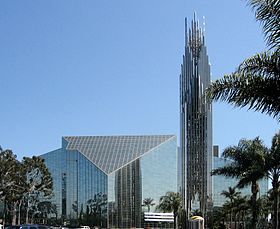 All she wanted was $50,000 from the equity in her house to help pay the bills while looking for a job in nursing. What Imogene Hall got was a brutal lesson in the sometimes shady ways of the mortgage industry.
All she wanted was $50,000 from the equity in her house to help pay the bills while looking for a job in nursing. What Imogene Hall got was a brutal lesson in the sometimes shady ways of the mortgage industry.
It's a lesson learned by untold numbers of homeowners in Florida, epicenter of the foreclosure crisis gripping the nation. "Everywhere I turn, someone else is scamming me,'' said Hall, a 49-year-old Jamaican immigrant who stands to lose her Miami Gardens home the Monday after Thanksgiving. "All I do is work hard, and I get surrounded by thieves.''
Think you've read the worst about foreclosures? Read this
U.S. trustee decries mega-church expenses
 A U.S. trustee in California questioned the salaries and housing expenses of employees of a Protestant ministry going through federal bankruptcy proceedings.
A U.S. trustee in California questioned the salaries and housing expenses of employees of a Protestant ministry going through federal bankruptcy proceedings.
The Justice Department Trustee, working in an administrative role with the bankruptcy court in Santa Ana, found particularly unnecessary a $132,019 housing allowance for Fred Southard, the chief financial officer of Crystal Cathedral Ministries in Garden Grove, the Orange County Register reported Thursday.
Class Warfare Jeopardizing American Workers' Security
 Warren Buffett once said:
Warren Buffett once said:
"There's class warfare, all right, but it's my class, the rich class, that's making war, and we're winning," Obama's deficit-cutting agenda the latest battle.
"Is cutting the public debt really an objective economic necessity, or is it actually a deeply political stance, reflecting the interests of the business and financial elites?"
China to play role in General Motors IPO
 Among the banks helping General Motors with its initial public stock offering next week are two identified by initials only: ICBC and CICC. Americans uncomfortable with U.S. government ownership of General Motors may want to hear more:
Among the banks helping General Motors with its initial public stock offering next week are two identified by initials only: ICBC and CICC. Americans uncomfortable with U.S. government ownership of General Motors may want to hear more:
One of those banks is the Industrial and Commercial Bank of China, one of China's four big central government banks. The other, China International Capital Corp., is a joint venture run primarily by Central Huijin Investment Ltd., an arm of the state, and Morgan Stanley.
Unbridled printing of dollars called "the biggest risk" to the global economy.
 Last Wednesday was a hinge point in history. The United States decided to drop all pretence of being interested in leading – or even being part of – a coordinated global policy response to the most serious economic crisis in more than 70 years.
Last Wednesday was a hinge point in history. The United States decided to drop all pretence of being interested in leading – or even being part of – a coordinated global policy response to the most serious economic crisis in more than 70 years.
Up until now, the rest of the world has been willing to tolerate unprecedented money-printing by the US – and the UK for that matter. QE has been used to help various financial institutions avoid facing up to their losses, while covertly recapitalising Western banks that are, to all intents and purposes, insolvent. Money-printing has also pumped up equity prices. After the latest Fed-induced "sugar rush", the FTSE global all-share index hit a two-year high.
The Federal Reserve Is Holding A Conference On Jekyll Island To Celebrate 100 Years Of Dominating America
 adly, most Americans have no idea how the Federal Reserve came into being. Forbes magazine founder Bertie Charles Forbes was perhaps the first writer to describe the secretive nature of the original gathering on Jekyll Island in a national publication....
adly, most Americans have no idea how the Federal Reserve came into being. Forbes magazine founder Bertie Charles Forbes was perhaps the first writer to describe the secretive nature of the original gathering on Jekyll Island in a national publication....
Broke Guy Faces $2,000 Fine for Collecting Recyclables
 The Department of Sanitation intends to make an example of a Staten Island man who tried to horn in on their turf by collecting recyclables from benefactors along his paper route. Poor Anthony McCorkle is trying to make ends meet by delivering the Staten Island Advance with the help of his brother's Hyundai. Some of his customers know he's in a tough spot, and they let him take the recyclable bottles in the bins outside their residence. But McCorkle is not a trained Department of Sanitation worker, and on Friday morning he was busted with a car full of contraband.
The Department of Sanitation intends to make an example of a Staten Island man who tried to horn in on their turf by collecting recyclables from benefactors along his paper route. Poor Anthony McCorkle is trying to make ends meet by delivering the Staten Island Advance with the help of his brother's Hyundai. Some of his customers know he's in a tough spot, and they let him take the recyclable bottles in the bins outside their residence. But McCorkle is not a trained Department of Sanitation worker, and on Friday morning he was busted with a car full of contraband.
More Articles...
Page 35 of 70

 Economic Glance
Economic Glance






























